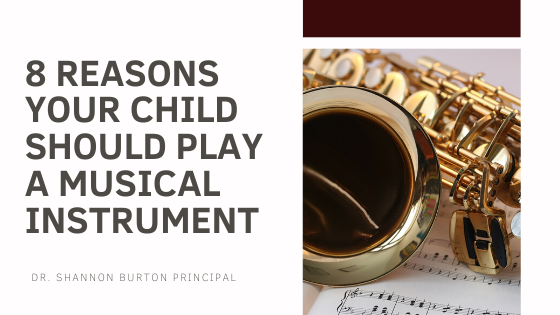Playing a musical instrument can elicit a great deal of joy and excitement. However, such an activity could also prove critical to the development of a young person in many ways including:
Goal Attainment
Even the most accomplished musicians did not demonstrate mastery the first time they picked up their instrument of choice. Proficiency requires practice and dedication. Oftentimes, improvement in the craft requires participants to set personal mandates and then work hard to attain specific goals.
Responsibility
Playing an instrument can foster a greater sense of responsibility. Learning notes, chords, melodies and even full songs or compositions requires allotting rehearsal time. Additionally, many musicians are members of bands or orchestras. Good teammates understand the importance of performing their role well and ensuring the whole functions better than the individual.
Listening Skills
A significant aspect of musical mastery in the ability to listen. Components like pitch, rhythm and tempo are basic concepts that must be understood. That said, these subjects cannot simply be explained or grasped through book learning. Aspiring musicians have to hear such concepts in the music. Ergo, budding musicians often develop and subsequently display superior listening skills.
Social Skills
Aspiring musicians often learn optimal social skills. Musical mastery is often a collaborative effort. Band members and instructors must be on the same page. Such coordination necessitates effective communication.
Confidence
It is safe to say that everyone in the world enjoys some form of music. Therefore, it goes without saying that individuals who can produce such joyous sounds are often admired. That said, not everyone possesses these unique skills. Persons who demonstrate such talents often gain a great deal of confidence.
Brain Strengthening
Reading music can be an intricate process. However, researchers opine that mastery of such a skill improves one’s reasoning and thinking abilities.
Stress-Busting
Many people listen to music when experiencing times of stress or tumult. Therefore, it should be no surprise that many mental health experts suggest that playing an instrument is often an effective method for alleviating stress and improving the participant’s general well-being.
Coordination
Proficiency on an instrument requires the brain and body to work in tandem. Producing specific sounds or hitting certain notes necessitates serious concentration and superior coordination.

